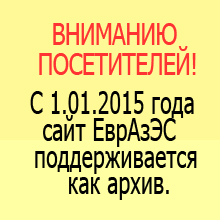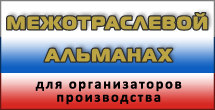|
Версия для печати
STATEMENT STATEMENT of the Heads of States of the Republic of Belarus, the Republic of Kazakhstan, the Kyrgyz Republic, the Russian Federation and the Republic of Tajikistan on the Establishment of the Eurasian Economic Community STATEMENT of the Heads of States of the the and the
of the Eurasian Economic Community
We, the heads of states of the Republic of Belarus, the Republic of Kazakhstan, the Kyrgyz Republic, the Russian Federation and the Republic of Tajikistan declare the establishment of an international organization, the Eurasian Economic Community (EurAsEC). This move testifies to the unity of political will among the heads of the five states and their determination to resolutely follow the path of mutual multilevel cooperation aimed at real integration. The trade and economic cooperation of our countries has reached a stage at which tariff and quantitative limitations in mutual trade have been cancelled, unified customs tariffs have been adopted for most goods items, non-tariff regulation measures are exerted in a coordinated manner, the member states apply common trade regimes towards third countries and the creation of a common customs space is underway. Besides, some concrete concerted efforts have been taken in the humanitarian sphere to more adequately meet the needs of citizens of our countries in the fields of culture, health care and social rights. At the same time there is a demand for closer cooperation and unification of national legislation, for measures aimed at increasing the total economic potential of our countries and for mutually agreed structural reorganization of our economies. The logic of the five countries’ progress towards the aims outlined in the signed agreements, including the customs union establishment and the creation of a common economic space, requires new forms and mechanisms of cooperation. The established Community is in particular called upon to serve the following goals: a) in the area of external trade and customs policy: completing the formalization of the free trade regime in all respects, creating a unified customs tariff and a unified system of non-tariff regulation measures; Introducing a coordinated set of preferences; establishing common rules for trade in goods and services, and their access to internal markets; working out a joint position of the member states as regards their relations with the WTO and other international economic organizations; Introducing a unified procedure for foreign exchange regulation and currency control; creating a mechanism for the provision of payment and settlement relations; creating a common unified system for the customs regulation providing unified rules of customs clearance and customs control, and common customs regimes; providing for economic security within the borders of the Community, and combating smuggling and other customs regime violations; strengthening and setting up the Community’s external borders; b) in the area of economic policy: conducting coordinated structural reorganization of the economies; drawing up and implementing joint programs of social and economic development; creating a common payment system; providing for an interaction of currency and financial systems; creating equal conditions for industrial and entrepreneurial activities; forming a common market for transportation services and a unified transport system; forming a common energy market; conducting joint research and developments in the priority areas of science and technology; creating equal conditions for the access of foreign investments to the markets; creating a unified multilateral and bilateral system for legal regulation, establishment and operation of financial and industrial groups; c) in social and humanitarian fields: harmonizing national education systems, the development of science and culture; Harmonizing national systems for the provision of minimum social standards; giving the citizens of the Community states equal rights in receiving education and medical assistance on its territory; d) in the legal sphere: reconciling and harmonizing national legislation; creating a mechanism for coordinating the adoption of national legislative instruments and other legal standards by the member states regarding issues that concern the Parties’ obligations within the framework of the EurAsEC; synchronizing terms of internal procedure completion for agreements concluded within the framework of the EurAsEC; ensuring coordination of the legal systems of EurAsEC states aimed at creating a common legal space within the Community. We, the heads of the five states express our determination that efforts to further cooperation in the economic and humanitarian sphere will gain the support of our peoples and will contribute to the more rapid economic development of our countries.
President of the Republic of Belarus A. Lukashenko President of the Republic of Kazakhstan N. Nazarbayev President of the Kyrgyz Republic A. Akayev President of the Russian Federation V. Putin President of the Republic of Tajikistan E. Rakhmonov
|
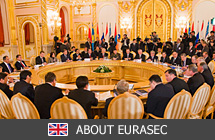
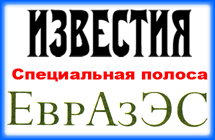
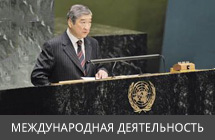
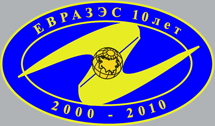
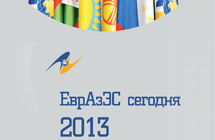
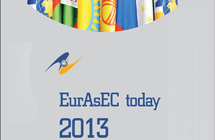
Поиск 10.10.2014 Заседание Межгосударственного совета ЕврАзЭС07.10.2014 Мультимедийная пресс-конференция в агентстве «Россия сегодня»03.10.2014 Встреча с Послом Финляндской Республики04.08.2014 Встреча Генерального секретаря ЕврАзЭС с Послом Республики Таджикистан20.06.2014 Премии Петербургского международного юридического форума «За вклад в развитие правовой интеграции на евразийском пространстве»28.05.2014 Договор о Евразийском экономическом союзе – важнейшее событие в новейшей истории наших стран25.05.2014 Презентация книги «Евразийский проект Нурсултана Назарбаева, воплощенный в жизнь. К 20-летию евразийского проекта 1994–2014»24.05.2014 VII АСТАНИНСКИЙ ЭКОНОМИЧЕСКИЙ ФОРУМ. Панельная сессия «Евразийской экономической интеграции – 20 лет. Итоги и перспективы»24.05.2014 VII Астанинский экономический форум и II Всемирная Антикризисная конференция, 21-23 мая 2014 года, Астана24.05.2014 Петербургский международный экономический форум, 23 – 24 мая 2014 года, Санкт-Петербург |

Евразийское экономическое сообщество
ЕврАзЭС
-
Страны участники
 Беларусь
Беларусь
-
 Казахстан
Казахстан
-
 Кыргызстан
Кыргызстан
-
 Россия
Россия
-
 Таджикистан
Таджикистан
-
 Узбекистан
Узбекистан
-
 Молдова
Молдова
-
 Украина
Украина



